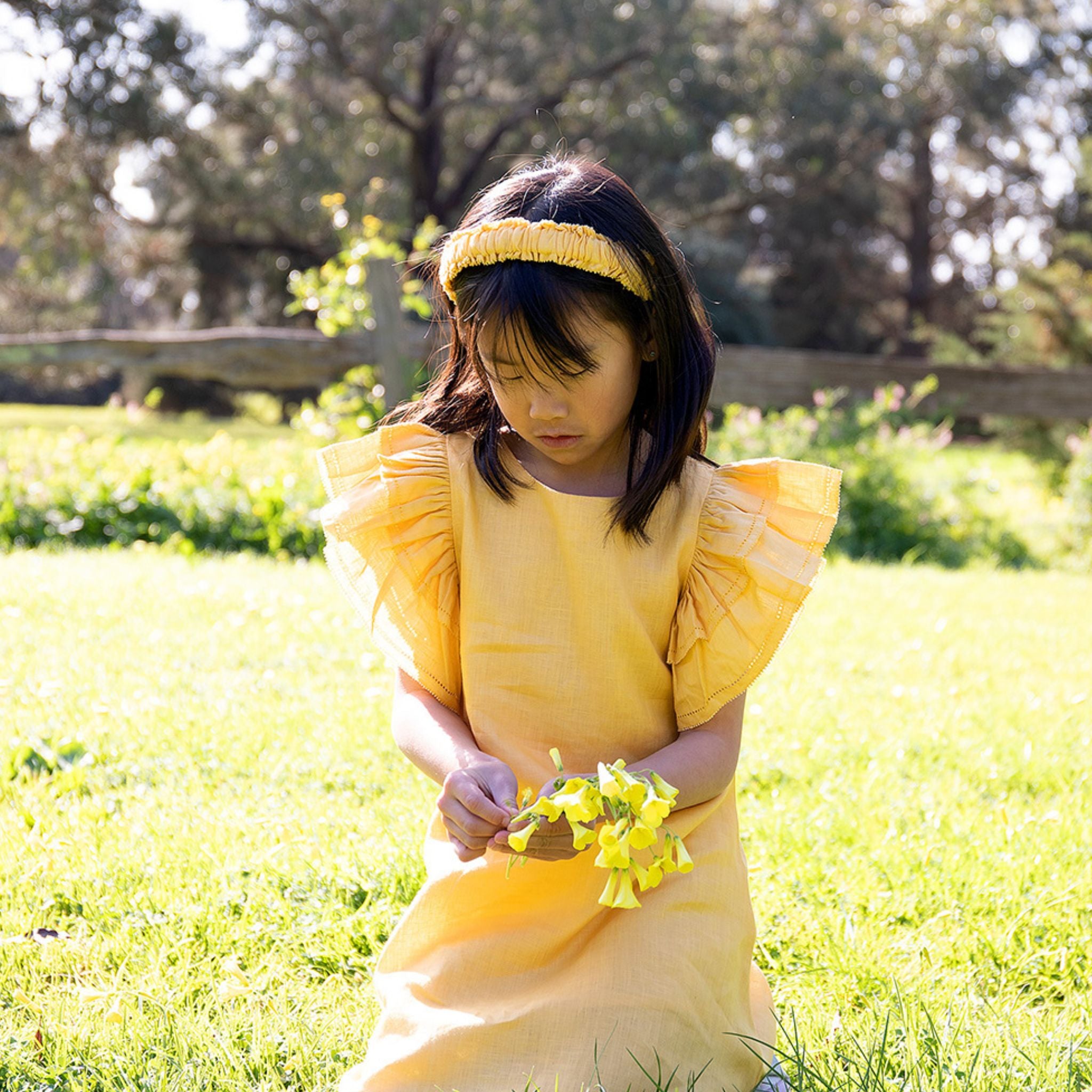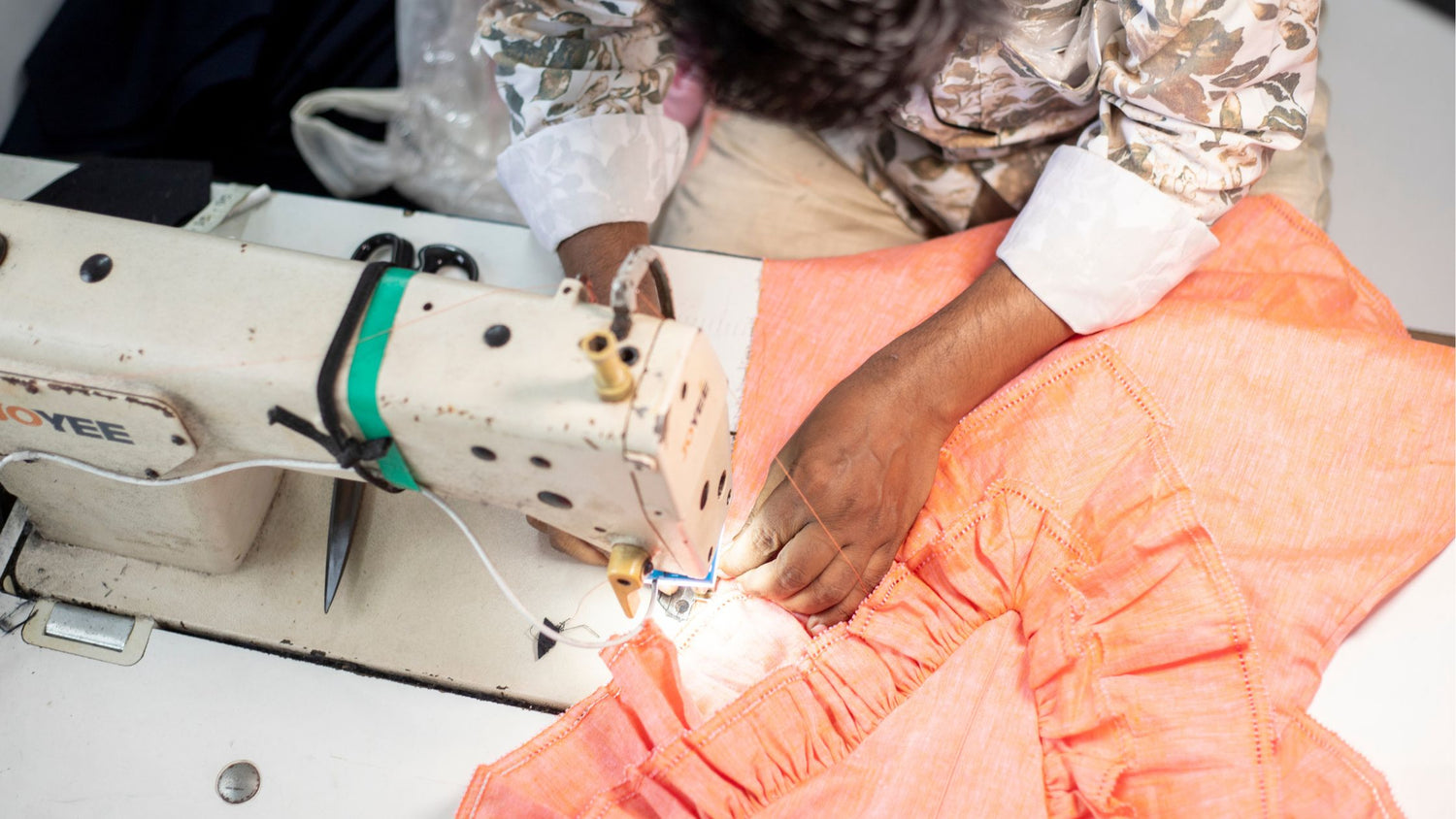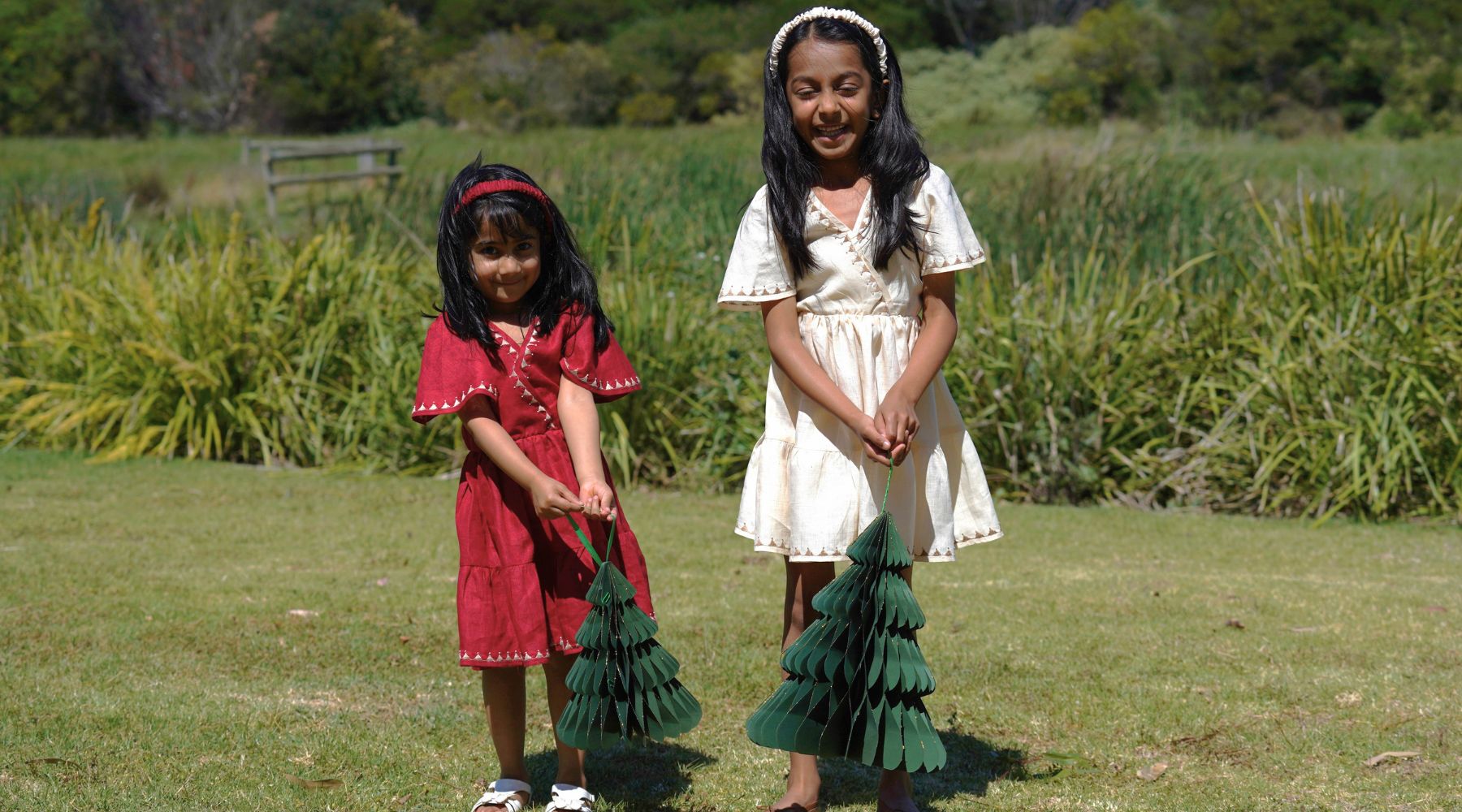Fast fashion has reshaped how we shop for children's wear, offering endless, rapidly changing styles. While this trend ensures parents can easily access trendy clothes for their children, it comes with substantial hidden costs. Understanding these impacts helps us make choices that benefit our children and the environment, aligning with Ruhmee's commitment to ethical fashion.
The Rapid Rise of Fast Fashion
Fast fashion is marked by the speedy, cost-effective production of clothes to keep up with the latest styles. Major retailers can debut numerous collections annually, sometimes weekly, making fashionable children's wear readily available but often at the cost of quality, sustainability, and ethics.
Parents might find themselves frequently replacing poorly made garments, leading to higher costs and more waste. On average, children might wear out or outgrow up to 20 different outfits each year, highlighting the cycle of consumption and disposal encouraged by fast fashion.
Environmental Impact
The production of fast fashion is resource-intensive, consuming vast amounts of water, chemicals, and energy. This results in significant pollution and waste, with the textile industry accounting for about 10% of global carbon emissions. Most fast fashion items are made from synthetic materials like polyester, which are not biodegradable, exacerbating landfill overflow and long-term environmental damage.
Ethical Concerns
The industry's labor practices also pose serious ethical issues. Many children's garments are manufactured under deplorable conditions, where workers, including potentially underage laborers, face low wages and dangerous environments. This raises concerns among parents about the ethics behind their children's clothing.
The Psychological Effects
Children are susceptible to fast fashion's marketing strategies, which can create constant demand for new clothes and instill a dispositional consumerism from a young age. Ruhmee believes in educating young consumers about valuing quality over quantity, promoting a healthier relationship with fashion.
Quality Over Quantity
At Ruhmee, we prioritize high-quality, durable clothing that withstands the test of time, reducing the need for frequent replacements and saving money in the long run. Our garments are designed to last through multiple seasons, embodying our philosophy that good fashion is sustainable fashion.

Cultivating Awareness
Educating consumers about the impacts of fast fashion is essential. We encourage parents to discuss with their children where their clothes come from and the resources they consume. Ruhmee is committed to transparency, showing our customers exactly how and where our clothes are made, supporting informed choices that lead to sustainable practices.
Sustainable Alternatives
Ruhmee is proud to be part of a growing community of brands that offer sustainable alternatives in children's fashion. We use eco-friendly materials and support fair labor practices, ensuring that our clothes are not only beautiful but ethically made. By choosing sustainable options, families can significantly reduce their environmental impact and support a market that values workers' rights.
The Role of Education
Changing the narrative around fast fashion starts with education. Ruhmee supports initiatives that teach children about the environmental and social impacts of their clothing choices, preparing them to be responsible consumers who value sustainability and ethical manufacturing.
Final Thoughts
The fast fashion industry's effect on children's clothing is profound, impacting the environment, labor ethics, and young consumers' psychology. By choosing brands like Ruhmee that are committed to quality and ethical practices, parents can help pave the way for a sustainable future in fashion. Let's make every choice count towards a better world for our children.





Leave a comment
This site is protected by hCaptcha and the hCaptcha Privacy Policy and Terms of Service apply.